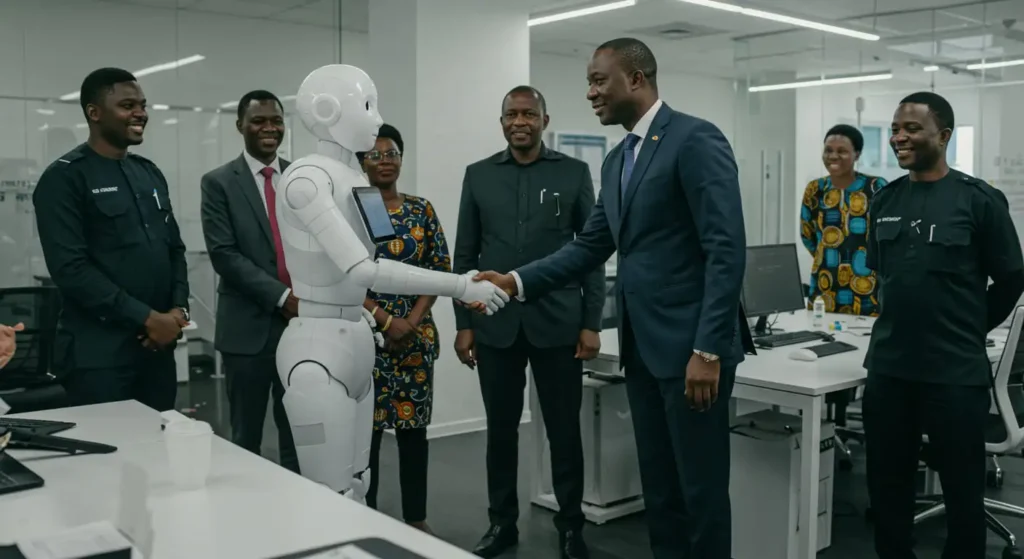AI and the Future of Work: What to Expect in the Age of Automation
Introduction
The workplace is undergoing one of the most transformative shifts in history, driven by the rapid advancement of Artificial Intelligence (AI). Once considered futuristic, AI is now embedded in everyday tools and systems that shape how businesses operate. From automating routine tasks to powering strategic decision-making, AI is redefining the roles we play and the skills we need.
For businesses and professionals alike, understanding AI and the future of work is no longer optional—it’s essential. This article explores the real-world impact of AI on today’s workforce, the jobs it will transform, the skills needed to thrive, and how both individuals and organizations can prepare.
The Current Impact of AI on the Workplace
AI is already integrated into many aspects of the modern workplace, streamlining processes and boosting efficiency. For example:
-
Customer service: Chatbots handle routine inquiries 24/7.
-
Human Resources: AI helps with resume screening and employee engagement tracking.
-
Marketing: Algorithms personalize campaigns based on user behavior.
According to McKinsey Global Institute, up to 45% of current work activities could be automated with existing technology. For small and large businesses alike, this means a growing reliance on AI for everyday functions.
Jobs Most Likely to Change or Disappear
Not all jobs will vanish, but many will evolve. Roles involving repetitive, predictable tasks are most at risk:
-
Data entry clerks
-
Telemarketers
-
Assembly line workers
However, the focus should shift from job elimination to task transformation. A role may remain, but the nature of its responsibilities will change, requiring new skills and digital fluency.
Emerging Roles in the Age of AI
While AI may phase out some jobs, it is also creating new career paths. These roles require human insight, creativity, and oversight of AI tools:
-
AI Product Managers
-
Machine Learning Trainers
-
Human-AI Interaction Designers
-
Ethical AI Officers
The rise of these positions reflects a growing need for professionals who understand both the technology and its implications for business and society.
Skills Needed to Thrive in an AI-Powered Economy
To stay competitive in the AI-powered future of work, both hard and soft skills are critical:
In-Demand Skills:
-
Digital literacy and data fluency
-
Critical thinking and problem solving
-
Adaptability and continuous learning
-
Collaboration with AI tools
-
Understanding of AI ethics and governance
As automation takes over routine tasks, uniquely human skills like creativity, empathy, and leadership will become even more valuable.
How Businesses Should Prepare for the Future of Work
Companies must take a proactive role in shaping how AI is integrated into their operations. Here are key strategies:
-
Audit existing workflows to identify automation opportunities
-
Invest in employee training and reskilling programs
-
Establish clear governance for AI tools and decision-making
-
Partner with AI training experts like Prymus AI to accelerate adoption
By doing so, businesses not only future-proof their workforce but also drive innovation and efficiency.
The Human Side of the AI Revolution
Despite its capabilities, AI cannot replicate human judgment, emotion, or culture. Successful AI integration depends on thoughtful collaboration between people and technology.
-
Ethical concerns, such as data privacy and bias, must be addressed.
-
Employee trust and transparency should be prioritized.
-
AI should augment human capabilities, not replace them.
Building a people-first approach ensures that AI adoption leads to empowerment rather than displacement.
Long-Term Outlook: Challenges and Opportunities
Looking ahead, AI will continue to reshape industries and redefine work itself. Key opportunities include:
-
Increased productivity and faster decision-making
-
Smarter customer engagement and personalization
-
Greater accessibility to global markets
However, the future also brings challenges like job polarization, digital divides, and the need for lifelong learning. The best-prepared businesses will be those that embrace innovation while investing in people.
Conclusion: Embrace the Shift
AI and the future of work are already here. The organizations and individuals that succeed will be those who view AI as an opportunity for growth, learning, and innovation. By focusing on skills, strategy, and ethical adoption, we can build a future where technology and humanity thrive together.

